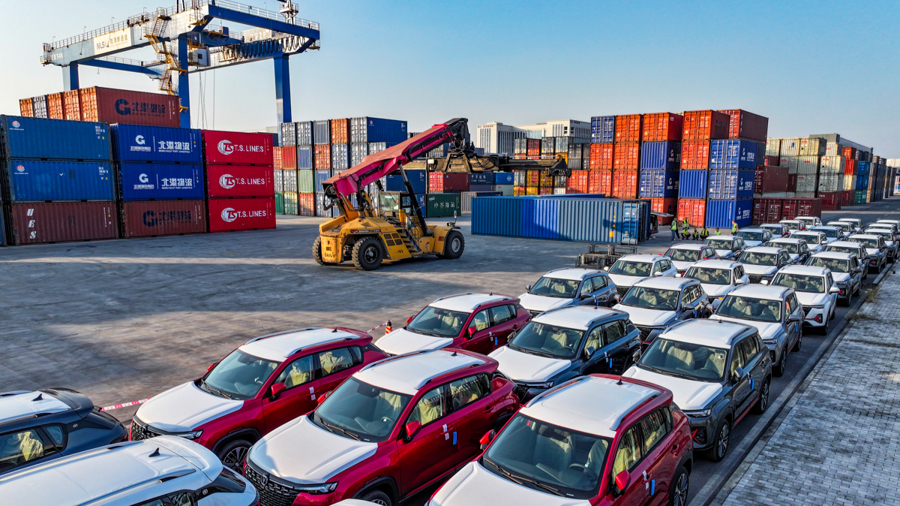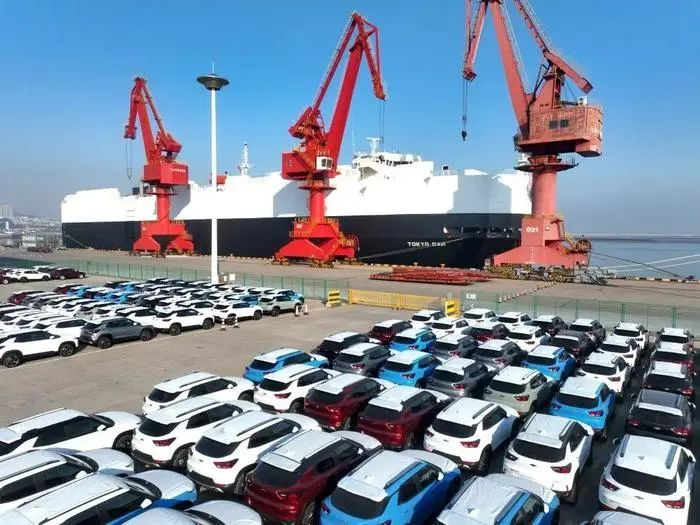
According to the first financial reporter learned from the authoritative sources, local time on the 24th, the WTO (WTO) dispute settlement body agreed to China's request for the establishment of a dispute panel to review Turkey to take relevant restrictive measures against imports of electric vehicles from China, the bill number ‘DS629’.
It is learnt that this time China submitted the second request for the establishment of a dispute panel to rule on the measures taken by Turkey on electric cars and certain other types of vehicles originating in China.
On 17 January, the spokesperson of the Ministry of Commerce of China said that since 2023, Turkey has repeatedly imposed tariffs, set import licences and other restrictive measures on electric cars and other vehicles imported from China, which is in violation of WTO rules and undermines the economic and trade relations between China and Turkey.

Turkey has repeatedly imposed tariffs, set import licences and other restrictive measures on electric cars and other vehicles imported from China, undermining Sino-Turkish economic and trade relations (Source: Xinhua file photo)
The principle of non-discrimination is a cornerstone of the WTO
On this occasion, China said at the meeting that it had taken note of the issues raised by Turkey on anti-competitive practices and subsidies, but that challenges faced by a member's industry need to be addressed in a way that is consistent with its WTO obligations, and should not be used as an excuse to abandon the core principle of non-discrimination, which is the cornerstone of the WTO and the rules-based international trading system.
Turkey stated that it was deeply concerned that China had made such a request before all possible bilateral consultations had been concluded.
Turkey explained that the Turkish industry involved in the case had been facing serious challenges for many years arising from issues of competitiveness, subsidies, and so on.
Eventually, the WTO Dispute Settlement Body agreed to establish a panel of experts.
For now, what can be seen in relation to the DS629 case is that China has requested consultations with Turkey on the following measures relating to electric vehicles (EVs) and certain other types of vehicles originating in China: that Turkey impose additional tariffs on imports of EVs from China; that Turkey require that imports of EVs and certain other types of vehicles from China be accompanied by import licensing certificates; and that Turkey impose additional tariffs on imports from China of other types of vehicles and exempts imports that have received investment incentive certificates under Turkey's investment incentive programme from these tariffs (investment certificate exemption).
China states that the challenged measures are inconsistent with the relevant provisions of the GATT 1994. Normally, after the establishment of a panel of experts in the WTO, the time between the establishment of the panel and the submission of the panel's report shall not exceed six months, or nine months after an extension in exceptional circumstances.
It is understood that this time, the European Union, Japan, South Korea, Brazil, Canada, Australia, the United Kingdom, the United States, Switzerland, Norway, Singapore, Russia, Thailand and India reserve the right to participate in the expert group process of the third party.
China defends domestic industry interests
The case has been brewing for some time. Previously, the Turkish side imposed an additional tariff of 40 per cent on imports of electric cars and other vehicles from China and set import licensing restrictions.
On 8 October 2024, China started a consultation request to the Turkish side at the WTO regarding Turkey's additional tariffs and import licensing measures on electric cars and other vehicles.
On the same day, a spokesperson for the Ministry of Commerce said that the discriminatory measure violates WTO rules and is a typical protectionist practice, ‘We urge the Turkish side to abide by its relevant commitments in the WTO and immediately rectify its wrong practices.’
A spokesman for the Ministry of Commerce also said that China would take all available means to safeguard the legitimate rights and interests of domestic industries.
Subsequently, on 16 January 2025, China submitted a request to the WTO for the establishment of a panel of experts, after consultations with the Turkish side were unsuccessful.
China stated in the relevant subsequent meeting that Turkey's measures were protectionist and discriminatory, and clearly violated Turkey's core obligations under the WTO Agreement, including most-favoured-nation (MFN) treatment, tariff bindings, and the general elimination of quantitative restrictions.
China expressed serious concern over the restrictive measures taken by some members, including Turkey, against Chinese new energy products, including electric vehicles, which are not in line with WTO rules. China said that strengthening technological protectionism is not a solution and that China will resolutely defend its interests.
In response, a spokesman for the Ministry of Commerce said that China will push forward the proceedings in accordance with WTO rules to safeguard the legitimate rights and interests of domestic industries.
Declaration: This article comes from the Shanghai Observer.If copyright issues are involved, please contact us to delete.